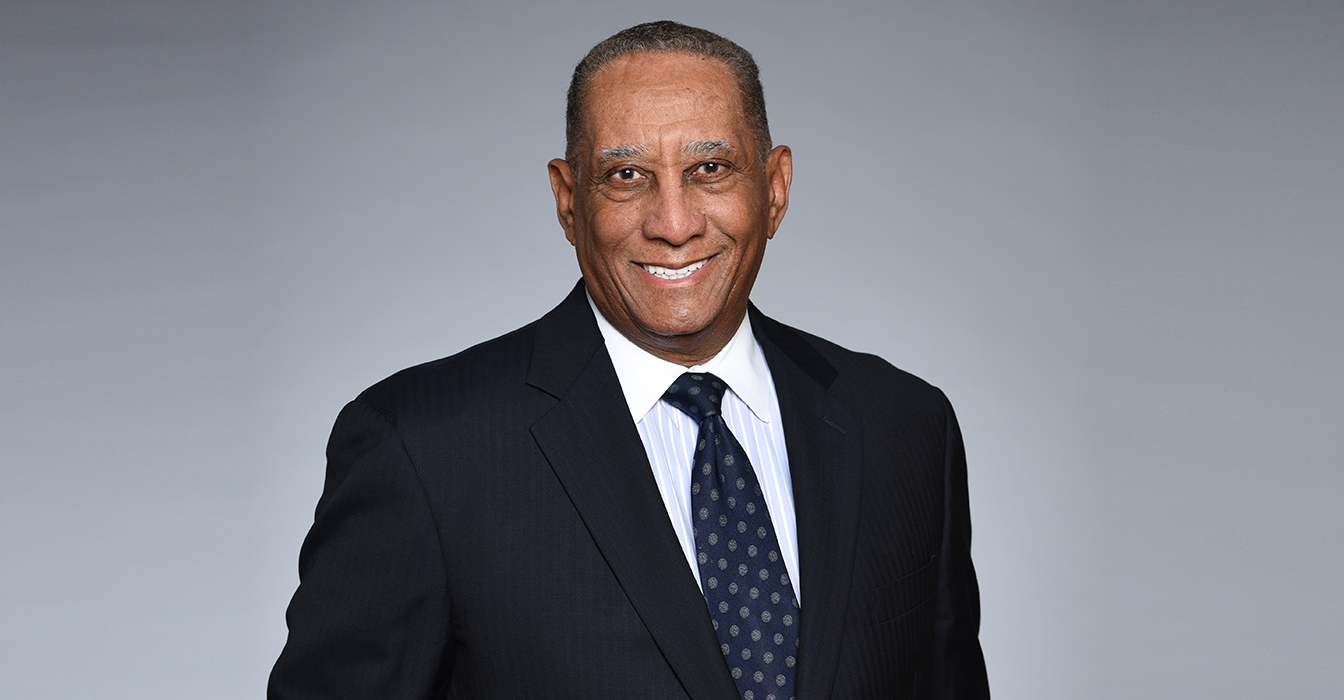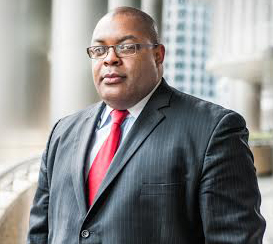AbstoneLalley Advises Stephen Pugh on Move to Burke Warren
By Katrina Dewey | February 10, 2020 | Lawyer Limelights

Photo of Stephen Pugh provided by the firm.
Networks start with people whose lives intersect.
Classmates from high school, perhaps, a colleague from the office or the parishioner who routinely sits in your pew at church.
The intertwined histories created by those networks fulfill a personal economic law of supply and demand, matching one person’s need with another’s asset, in a way that outsiders typically cannot. Have you read a good book? Do you know a lawyer who might help me? I’m thinking of changing jobs.
Stephen Pugh still thinks of the Cabrini Green housing project as home, at least early on. Though he’s gone on to earn a law degree from Loyola University Chicago, clerked for a federal judge, served as a federal prosecutor for the U.S. Department of Justice, established himself as one of the top trial attorneys in Chicago and a powerbroker at the helm of Pugh Jones & Johnson, which he built into a preeminent minority-owned law firm.
So when late last year, Pugh decided to join another firm, he naturally turned to someone with whom he had an affinity to help him through the process. Rodney Abstone-Carabajal of AbstoneLalley Inc. legal consultants was foremost in his mind after amassing an impressive record initiating and facilitating mergers and acquisitions of other national, minority-owned law firms and representing both parties throughout the entire process.
In the blink of an eye, Abstone-Carabajal connected Pugh with Burke Warren MacKay & Serritella, a full-service Chicago practice where he became a shareholder in mid-January.
“It’s difficult to close a firm after 29 years, in terms of both relationships with clients and relationships with employees,” Pugh says. “But if you have to do it, it’s nice to have someone like Rodney who can reassure you about what’s out there in the marketplace.”
“Abstone-Carabajal knows lawyers of color and knows the quality of the lawyers that are out there,” Pugh says.
Consequently, when Abstone-Carabajal approaches a firm on behalf of a client, the hiring partners know “he’s not simply peddling the latest person who just happens to want to move to another firm,” Pugh says.
AbstoneLalley’s international firm has offices in five cities, including Chicago, with a deep network of black and other minority senior partners at major law firms as well as general counsel at Fortune 500 corporations throughout the U.S.

Abstone-Carabajal says he developed credibility by emphasizing relationships. As a result, unlike many in his profession, he seldom makes cold calls.
“Most of the business that we have, easily 90% in both candidates and clients, has been from referrals,” he says. “That only comes when you treat people well, when you are kind, when relationships are important to you.”
Whenever AbstoneLalley hires new employees, “that’s the thing that we reinforce,” he adds. “If you don’t have that relationship, then you really have nothing.”
At the time Pugh contacted him last year, Abstone-Carabajal had already been working with Burke Warren and two of its shareholders, John Stevens and name partner Jeff Warren, on improving its diversity.
“I often speak to firms about that issue, and I’ve learned the difference between people who are just providing lip service and those who are truly committed,” he explains. “When you’ve been doing it for a while, it’s not hard to figure out what that difference is and how to pick up on it.”
Talking with the Burke Warren partners, Abstone-Carabajal realized their interest was sincere: “They didn’t shy away from the difficult conversations.”
The firm seemed a potentially ideal fit for Pugh not only because of its diversity recruitment but because it doesn’t have a mandatory retirement age that might be a barrier to someone with Pugh’s years of experience, Abstone-Carabajal says.
Fortunately, Pugh had already worked with name partner Jim Serritella and respected him, and he knew that the people relying on his services already would be able to handle Burke Warren’s rates.
“It was very important to me that they had a business model where they were not charging clients exorbitant fees for the work that they were doing, so I knew that the clients I had could fit within the parameters of their business,” he says.
From Pugh’s perspective, Burke Warren’s size helped cinch the deal. “I wanted a medium-sized law firm,” he says. “I didn’t want to go to one that had 500 to 1,000 lawyers and be lost. I thought that this firm had all the resources that I needed to continue my practice at a sophisticated level that was maybe a step up from Pugh Jones.”
Giving up his minority-owned business to join a majority firm is a step Pugh was comfortable taking, he says, because “it’s going to be very important for the majority law firms to open up the doors and really see the value of diversity and lawyers of color, not in terms of some social do-gooding, but in terms of the business that can be generated and the expertise and knowledge that they have.”
Achieving greater racial equity in the legal profession in a country where only 5% of lawyers are black compared with about 13% of the population will require firms to seek diverse recruiters rather than relying on in-house staff, Abstone-Carabajal believes.
“Whatever your network is, it starts with people you know,” he says. “So when you’re trying to build a specific network of people or attract candidates, it makes a lot of sense to hire someone who has that network. A lot of firms are missing the mark by not doing that.”
Pugh heartily agrees. “If law firms truly want to become more diverse, they need to work with a minority consultant who has a network of minority attorneys,” he says. “If they continue to use the same resources, they are missing out on top minority attorneys.”

